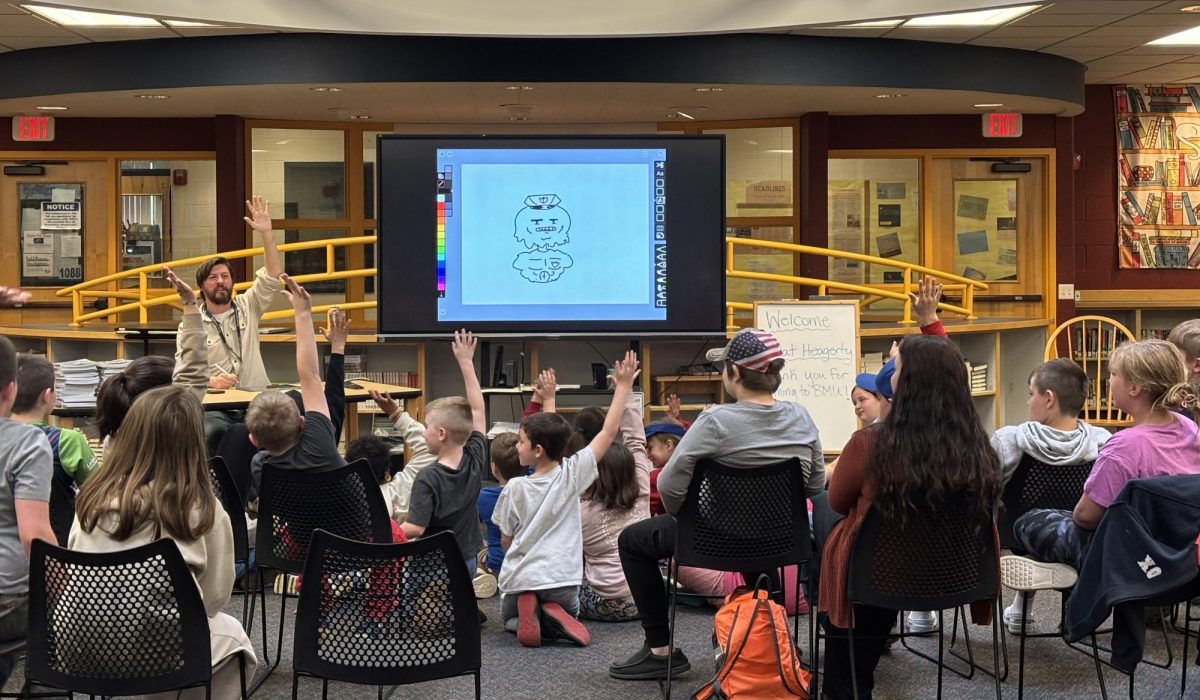Authors Blurb-
Abigail Emerson, a current high school senior, plans to attend college in the near future. Her goal is to enter with the understanding that colleges are looking to support their students’ mental health.
Opinion-
There seems to be a new and interesting way of promoting the college experience. Or maybe it is considered a warning sign? On my recent college tours, I was informed that college is stressful. I couldn’t wrap my head around why it was important to be mentioned. It seemed ironic due to the fact that the guide’s purpose was to convince me to attend their college. Instead of letting the red flag push me away, I decided that it was important to understand the concept. So why the stress? Why does college need to be stressful?
College students are crying out for help. There is a massive mental health crisis throughout the United States college campuses. More than 60% of college students are experiencing mental health issues. Students are experiencing stress, anxiety, depression, and thoughts of suicide. Out of over 90,000 college students in the United States, 44% of students experience depression and 37% experience anxiety. It was thought that after the decrease in Covid-19 restrictions, the numbers would drop. However, that was not the case. Making matters worse, suicide consideration rates reached its peak at a whopping 15%.
A shocking number of students are looking for help, yet there simply isn’t enough. Counselors are overbooked and overwhelmed. This is partially because of the erasing stigma around mental health. Nonetheless, there is a crucial need. There are lengthy waiting lists for those in need to get into even a single counseling session that could take weeks or even months.
To make matters worse, mental health care can be dependent on one’s race. White students are more likely to receive the help that they need. 33% of Latino students receive help, 26% of Black students receive help, and 23% of Asians receive help, where 46% of white students receive help. This could be related to the fact that there are more white counselors.
College students don’t know what REAL life is about… And actually, college is just as overwhelming as a daily job. Graduating high school and moving on to the next chapter of life is an enormous adjustment. Whether transitioning into college or into the workforce, there are many changes that occur. College aged students are still experiencing puberty, which comes with both developmental and physical changes within themselves. Many experience anxiety and fear their future because they are worried that they will make decisions that will lead them in the wrong direction. Some struggle with substance abuse, which is proven to impact mental health. Some have built up trauma hidden within. Even without college, it is a stressful period in one’s lifetime.
For college students specifically, there is overwhelming financial stress, a different support system, academic pressure, and even physical health concerns. College is not considered cheap and the debt quickly adds up. Also, there is both a food and housing insecurity that is not often talked about. The physical health of college students is often paused because their education and job are higher in priority. While some maintain a job and try to balance their personal life, the students also have to maintain an acceptable academic record. The major life transition, unbalanced time, and piling responsibilities leave college students burnt out.
There is also something often overlooked: the mental health of college faculty. Not only are faculty often relied upon to support students’ mental health needs, but they are also struggling to meet their own. The demanding work environment can be challenging. There is constant productivity pressure to assure that students receive the proper education. Unfortunately, it is difficult for faculty to balance their personal and professional lives. This leads the faculty to be burnt out, stressed, anxious, and or depressed. And when they feel this low, it is impossible for them to properly support their students’ emotional needs.
Now, more than ever before, students and faculty are in need of your support. These students are the face of the future. The faculty provide the knowledge to advance their futures. It is important to understand symptoms and signs of mental illness. To reassure those that are struggling, encourage them to stay connected, share necessary resources, suggest professional help, and remind them to eat, sleep, and stay active. To make a broader difference, connect with college campuses near you to offer them support so that their students can thrive. Isolation doesn’t help anyone, so be the change and make a difference for the future.

























